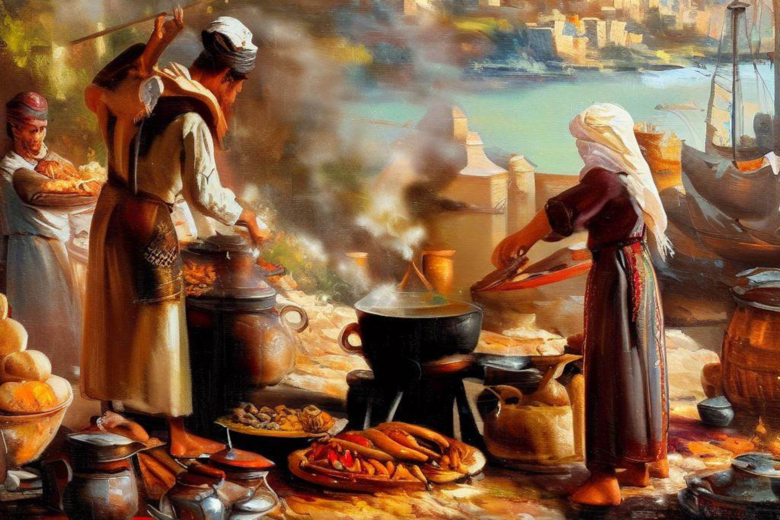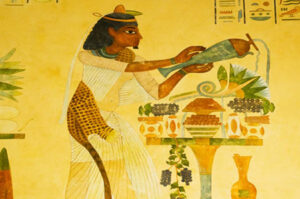The Abbasid Empire, one of the most influential Islamic civilizations, thrived in the Middle Ages, leaving behind a remarkable legacy of art and culinary traditions.
Abbasid’s art was a vibrant fusion of various cultures, reflecting the empire’s diverse influences. Their art included intricate calligraphy, geometric patterns, and stunning architecture. Additionally, the Abbasid’s were skilled in pottery, creating beautiful ceramics decorated with rich colors and intricate designs.
Furthermore, the Abbasids were patrons of science, literature, and the arts, fostering a flourishing cultural atmosphere. This led to the creation of impressive manuscripts and exquisite miniature paintings, showcasing their creativity and refinement.
Moreover, their architectural achievements were awe-inspiring. They built magnificent mosques with intricate domes, minarets, and mosaics, representing their dedication to creating grand places of worship.
In addition to their art, the Abbasid’s had a rich culinary tradition that significantly influenced Arabic cuisine. Their cuisine was a harmonious blend of flavors and aromas, making use of a wide array of spices and herbs.
Keep reading about, Abbasid Art Arabic Culinary:
Additionally, the Abbasids greatly valued food and hospitality, making feasts an essential part of their social gatherings. They relished gatherings with family and friends, celebrating special occasions with elaborate meals.
Besides, their culinary practices were diverse, influenced by various regions and cultures under their empire’s reign. This resulted in a rich tapestry of dishes, each with its distinct taste and preparation.
Notably, the Abbasid’s were instrumental in the spread of sugarcane cultivation, leading to the widespread use of sugar in their cuisine and beyond.
As a result of their artistic and culinary achievements, the Abbasids left a profound impact on Islamic culture and the world. Their art and cuisine set the stage for the flourishing of Islamic civilization and its contributions to humanity.
Therefore, we owe much to the Abbasids for their preservation and promotion of knowledge, art, and culinary traditions.
Consequently, their legacy continues to influence modern Arabic cuisine, and their artistic contributions remain admired and studied by art historians and enthusiasts.
In conclusion, the Abbasid Empire’s art and Arabic culinary traditions were essential components of their flourishing civilization. Their art displayed an exquisite blend of styles, while their cuisine was a harmonious fusion of flavors. By exploring these aspects of the Abbasid culture, we gain a deeper appreciation for the richness and diversity of Islamic heritage.




